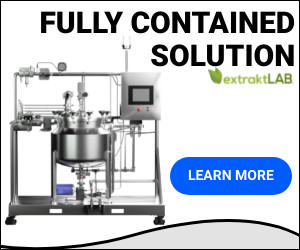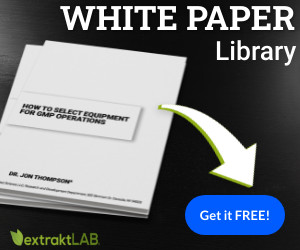Summary: While it is always good practice to request CBD third party certifications testing results for CBD products, they can’t always guarantee a pure and safe product. Denatured ethanol extraction can cause residual solvents and other materials to end up in the product at “acceptable” levels according to regulations. In this article we discuss what you need to know when it comes to third party testing and residual contamination in CBD products.
Why your CBD May Contain Residual Solvents
So, you’ve had CBD third party certifications that says your CBD is pure. Because of this precautionary measure, you feel totally comfortable that this product you take every single day is safe, effective and pure. But, is it really safe, effective and pure?
The fact of the matter is that, while third party certifications are a good measure, it doesn’t always mean your products are free and clear of all residual chemicals or contaminants. In fact, this unfortunate reality can be examined in the food and drug industry.
Did you know the federal government allows some pretty disgusting things in your food as long as that “disgusting” thing does not exceed certain levels? The FDA has published guidelines on maximum allowed limits on mouse hairs, maggots, molds, rodent excreta, insect parts, mites, foreign matter and debris – a disturbing thought to say the very least.
So, why is this allowed to happen? Unfortunately, these regulations are passed with production and profit in mind above and can be found regularly in the food and drug industry.
“Acceptable” Limits of Feces in your Food?
For example, fennel seeds, ginger, and mace (a spice similar to nutmeg) can all contain up to an average of 3 milligrams of mammal excretion per pound. For sesame seeds, the limit is significantly higher – up to an average of 5 mg per pound. The guidelines are filled with limits on gross contaminants with the claim being that there is no health hazard presented by such contaminants.
While there may be some truth that these “acceptable” contaminant levels may not pose an immediate threat, what about continual, if not daily consumption? There is little research conducted to show that constant intake of animal feces is necessarily “safe,” so why allow any amount of contaminant to remain in these foods?
How would you like to be an inspector charged with looking for these defects? Suppose you as an inspector observe a “defect” and then do some testing. Since there was not enough feces, the batch would get a pass and sold to consumers. The likelihood that you would find this to be “safe” or ethical is likely very low. But, because they are compliant with the FDA guidelines, the products are sent to market where it’s left to the consumer to assess their own risks in ingesting these foods.
Consumers Demand Clean Food When Informed
Even though these items are gross, they are definitely not toxic or cancer-causing for consumers. However, if you had a choice between “rat excretion free” items and items that are deemed safe, yet have rat excretion at no additional charge, which would you choose? The former is the clear choice.
The key for any customer is to be aware of the difference and pay attention to the labeling so that you would know which items are truly rat excretion free. This applies not only to organic contaminants, but also to chemical contaminants as well.
“Safe” Limits of Chemical Contaminants in Your Food?
In a similar fashion to allowing “safe” levels of animal waste, the federal government has placed “safe” limits on unavoidable chemicals in your food and other ingestible items. There are “allowable” limits placed on chemicals such as hexane, heptane, chlorinated solvents, alcohols, and other small non-natural chemicals that contaminate while processing with denatured ethanol. Unfortunately, your CBD product is one of those items.
“Consumers expect their CBD to be healthy and not have to worry about chemical residues. I encourage consumers to look for products manufactured with CO2 labels.” – Dr. Jon Thompson
Passing the Test
Now, suppose you are a third party testing lab. You receive a sample from a customer and measure several different chemical contaminants. These residuals include heptane, hexane, acetone, isopropyl alcohol, methanol, rubber hydrocarbon, ethyl acetate and many many more.
The federal government allows 5000 ppm of residuals for class three solvents.
The amount that your lab measures is below the limit but there are still contaminants. The report provided to your client then states “pass” for solvent tests even though there are chemical contaminants in the sample.
That lot then gets made into 100,000 tinctures and are sold to consumers. The consumers are taking that contaminant every day without being aware of the contaminant because the third party laboratory certification says “pass.” So, how does this chemical contamination find its way into your CBD products, and what can you do to avoid it?
Where Does the Contamination Come From?
Ethanol extracted CBD oil has many of these chemical residuals left in them after processing because chemical manufacturers add them to pure ethanol to reduce cost. Although ethanol CBD extracts have these chemicals removed to “safe” levels, and the test certification shows that it is clean, it is a certainty that they still contain small amounts of these chemicals.
The FDA rule applies to cases where solvents in the ingestible are unavoidable. In the case of hemp and CBD, chemical residual solvents are completely avoidable.
Why CO2 Extraction is the Safe Choice
Supercritical CO2 extracted CBD does not contain any of these chemicals and is completely pure. This is why the leading hemp producers have turned to a CO2 extraction equipment method with numerous benefits that include:
- Reduced or eliminated risk of chemical contaminants
- Ability to create certified organic CBD oil
- “Clean and Green” extraction that significantly reduces environmental impact
If you had the choice between CBD that was residual free vs CBD that had residuals but passed the test, which would you choose? Our advice is simple: read the label and be aware.
Whether you are a consumer or a producer, residual contaminants in your CBD product is not something to take lightly. At extraktLAB, we use the safest supercritical CO2 extraction equipment on the market and are willing to discuss your concerns. Contact us at 651-600-0036 to learn all you need to know about CBD safety, third party testing and supercritical CO2 extraction.


